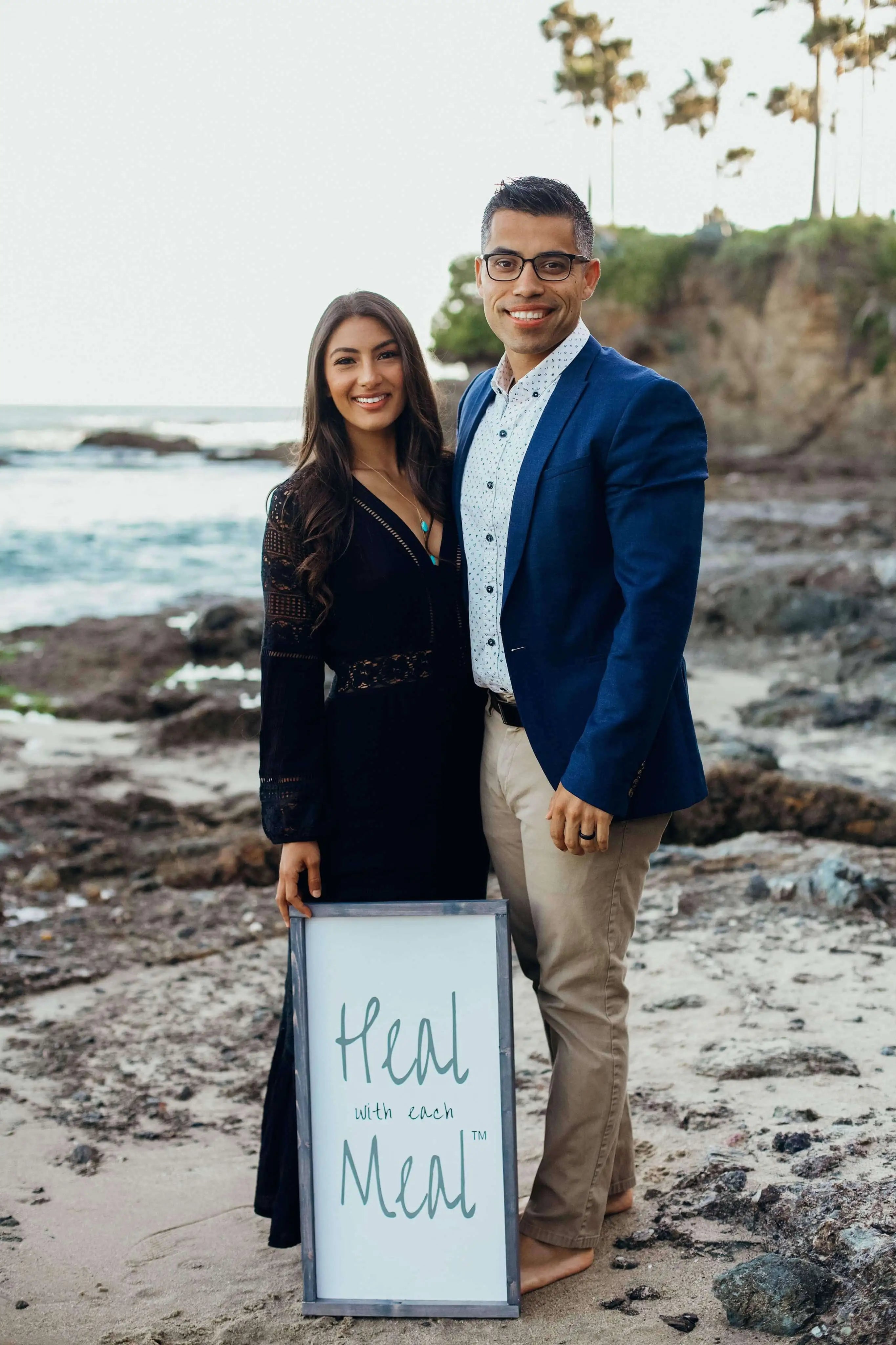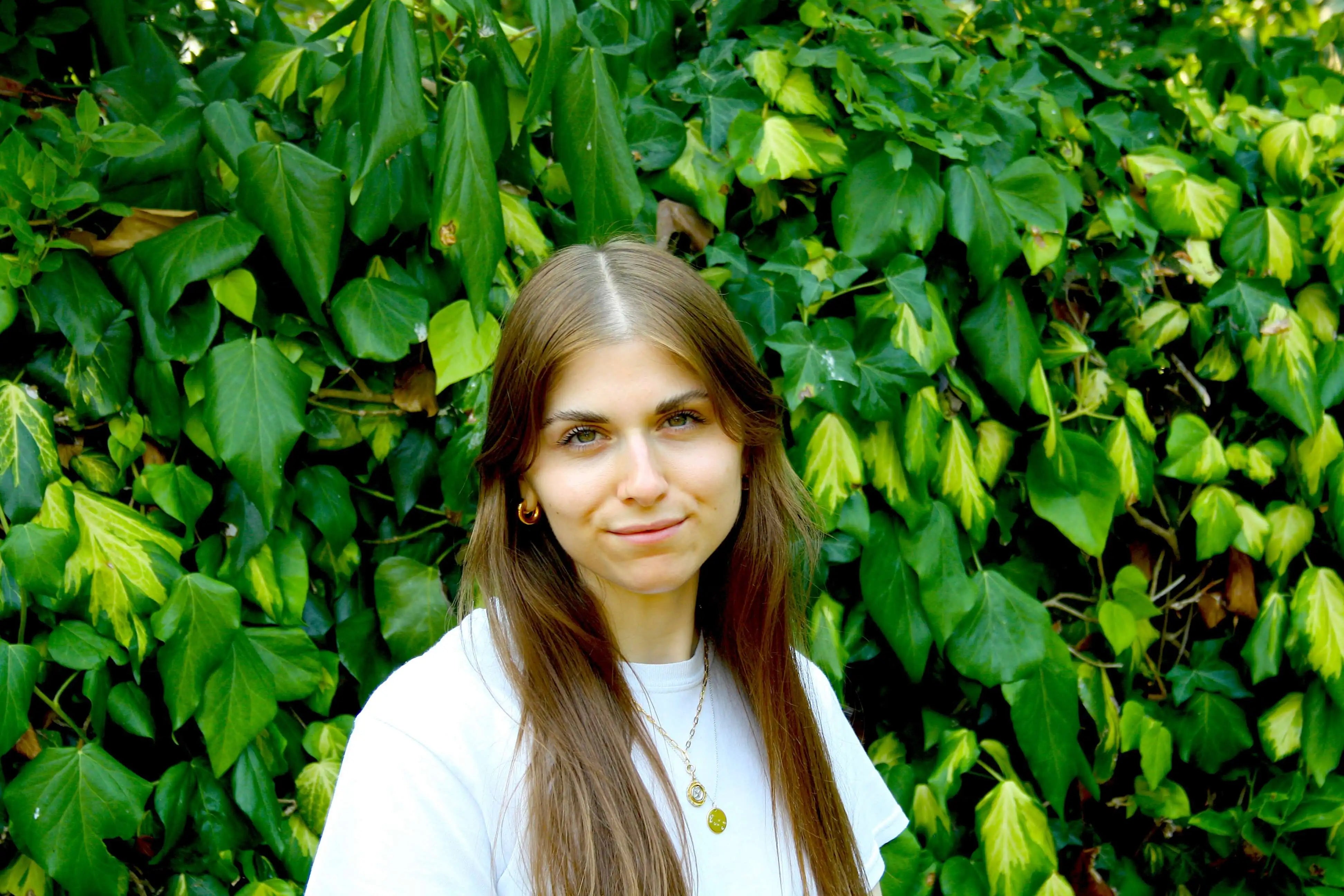How did your personal health journeys influence your decision to adopt a plant based lifestyle and become Registered Dietitian Nutritionists?
It was our health issues that fueled us to keep searching for support, relief, and overall health. That search which included an undergraduate degree, countless research articles, seminars, conferences, and hundreds of hours in various dietetic settings, ultimately led us to implementing and maintaining a plant-based lifestyle for 11 years and solidified our passion in our profession as integrative Registered Dietitians.
What are a few tell-tale signs that our gut health may not be in tip-top shape?
For us, symptoms are some of the biggest puzzle pieces when trying to figure out someone’s health story and plan of action. Symptoms/diseases like: indigestion/reflux, constipation (which can even be a sense of not fully completing a bowel movement), abdominal discomfort after eating certain foods, distention, bloating, extreme cravings-especially sugar, skin irritations, mood changes, and poor sleep are all signs your gut microbiota is not where it should be. We highly recommend taking care of the little symptoms before they turn into big issues.
Can you explain what taking an integrative approach to gut health means and why it’s so important?
Simply put an integrative approach is taking time to discover root causes while trying to help current symptoms. It is fine to change the flat tire, but it is even better to have a plan of action that will prevent the flat tire from happening: checking air pressure, avoiding driving on messy roads, rotating your tires, etc. This is very much like our daily habits of drinking water, eating a fiber-rich diet, getting wonderful movement daily, and much more. This is vital when it comes to gut health because gut health is the nexus of all health on the planet. If we take a proactive approach to gut health, we are taking care of everyone’s health.
What are your top tips for sustainable success when transitioning to a plant based diet?
#1 is understanding your “why”. Is it health, environment, social issues, or all of the above? Having a good grasp on why you are making these changes gives you a passion for making them sustainable.
#2 We recommend adding before taking away. Many times people think going plant-based means taking away this animal product, or that ingredients, or favorite recipe. We recommend adding before taking away, by adding more plants to things you already love it helps to go plant-based in a sustainable way. Remember even eating 51% of your food from plants is plant-based!
While maintaining patient confidentiality, of course, can you give us an example of someone you treated, their journey, and how you helped heal them?
We will call her patient M. She started with us in 2018 and could only tolerate eating five different foods due to severe Irritable Bowel Syndrome (IBS). Her symptoms led to extreme food fear, which is very common as the excruciating pain makes a person essentially scared to eat. We were likely her last-ditch effort to make drastic changes, which she accomplished through working with us. We like talking about patient M because it is now 2022, and we continue to work with this patient.
While four years may seem like a long time to work with a patient, it is essential to understand the context. Are four years of progress, symptom relief, GI medication elimination, and a better relationship with food that long compared to 15, 20, or 30 years of suffering from IBS like we see many of our patients do?
Something we like to tell our patients is, “You took a long time to get unhealthy; allow yourself some time to get healthy again.” Patient M now enjoys a vast array of gut-healthy foods, she is thriving with a great care team, including a talk therapist and pelvic floor therapist, and she has overcome a majority of her food fears. All of this while not having to compromise her values as a vegan who wanted to continue on a 100% plant-based diet. All of the providers she had worked with previously told her she would need to forgo this type of lifestyle, but we were able to provide her with the help she needed thanks to our 100% plant-based SIBO/IBS program.
Congratulations on your new e-book ‘Good Gut A-Z Guide’! Tell us why you created the book and what readers can expect.
We noticed that our patients and our followers would often tell us “I want to incorporate more plant foods into my diet but don’t know where to begin”. Because of this, we decided to create the Good Gut A-Z guide to help those of all ages and stages incorporate more fiber and plant foods into their diet. Our guide not only gives our readers information about the benefits of each plant food listed, but the ways in which they can incorporate these plant foods into their diet whether it be as a salad topping or as a main component of a dish. The guide is family friendly and there’s something in it for everyone, whether you’re one or one hundred and one!

What’s your favourite easy ‘go to’ meal when you’ve no time but still want to be healthy?
In our family, we make spending time together a priority. So after long days of seeing patients, we love whipping up some “healthy lazy” meals so that we can use those extra moments to spend time with loved ones while still nourishing our gut. Our absolute go-to especially during the winter months is leftover soup. Taking time to cook is definitely part of a healthy lifestyle because not many people know that the act of preparing and cooking food is actually part of the healthy digestive process. However, we do not cook from scratch every single meal, every single day. Making a large batch of soup is a key go to for us because soup is extremely gut healing and it is jam packed with a diversity of plant foods. It is a complete meal that you scoop out of the fridge, heat and enjoy whenever you are hungry.
And finally, we love that Married to Health is an eco-friendly company – can you tell us why having an environmentally friendly dietetic practice is so important to you?
It’s important to recognize that everything is connected. From the breakfast we eat, to the type of printer paper we buy, and beyond. With that understanding it is a must that our organization reflect and practice an eco-office model. Everything our company does and buys is done so with consciousness, reflection, and purpose not just for the good of the practice, but for the good of all living creatures on the planet for generations.
James & Dahlia’s new e-book ‘Good Gut A-Z Guide’! is available now from their website. JERMS readers receive 20% off with code WEAREJERMS20.





